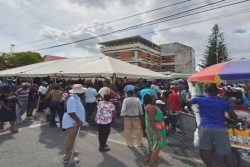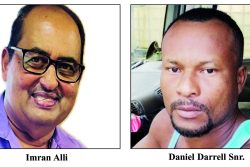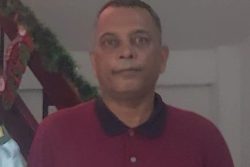The political situation in Venezuela is tense and the slide into authoritarian rule appears to be continuing unabated. Political persecution, harassment, intimidation and threats are increasingly the order of the day, particularly if one is a member of the opposition, a member of the student movement or a journalist critical of the government.
The ex-governor of the State of Zulia and current Mayor of Maracaibo, Manuel Rosales, has had to seek political asylum in Peru, because the government has brought a case against him for alleged corruption during his term as governor. Considering that President Chávez has repeatedly threatened the former presidential candidate with jail and that the government exercises almost total control over the judiciary, it is not surprising that Mr Rosales and his supporters are claiming political persecution and that there is little expectation of a fair trial.
Last month, General Raúl Baduel, Mr Chávez’s former Defence Minister and now member of the opposition, was detained at gunpoint by military intelligence agents. He has been accused of helping himself to public funds while serving as Minister.
The current leader of the opposition, the Mayor of Caracas, Antonio Ledezma, has not been able to assume his post since being elected on November 23 last, as his municipal offices have been illegally occupied by chavistas and the government has done nothing to redress the situation. Indeed, President Chávez has brought in new laws to restrict the autonomy of the mayor and to assert the overall control of the central government, in addition to subjecting Mr Ledezma to all sorts of public abuse and threats.
In March, acting on the orders of the President under a new law granting the executive arm responsibility for the management of ports and airports, the military occupied several of these installations, most of them in areas governed by opposition figures, in a clear move to limit the financial and economic effectiveness of the President’s political adversaries. In Venezuela, the administration of ports, airports, roads and highways is the exclusive responsibility of the respective state government in coordination with the central administration, not the other way around. But this is the new pattern: existing statutes are interpreted or new laws passed according to the whim of the President to take away powers and authority from elected officials who do not share the orientation of the central government.
Then there is the recent, unprecedented sentencing of three police commissioners and eight metropolitan police officers to 30 years in prison, the maximum penalty allowable under the Venezuelan Penal Code, by a judge married to a senior official of the ruling party, in a trial said to be the longest in the country’s history and plagued by all sorts of irregularities, inconsistencies and contradictory testimonies.
These are all signs that, notwithstanding the veneer of democracy in Venezuela, the quality of democracy in our neighbour is seriously threatened by the concentration of power in the hands of an increasingly authoritarian president.
No one can dispute that President Chávez rules as a freely elected head of state, but politically motivated threats and intimidation, violence (real and implied), manipulation of the judicial process, all add up to an abuse of power and a betrayal of democratic governance. The legitimacy conferred by the ballot should be expressed and reinforced in the legitimate exercise of power, respectful of the constitution and the law of the land, mindful of the need for checks and balances, and respectful of the right of the elected opposition to peaceful, political dissent.
Mr Chávez is a charismatic leader, who is by nature confrontational in manner and revolutionary in his rhetoric. The self-designated heir to Simón Bolívar, erstwhile coup leader and devotee of Fidel Castro sees himself as a revolutionary hero intent on creating a new “Bolivarian” state by first destroying the vestiges of the old, failed oligarchic system.
This is not the 19th or 20th century, however, and surely one of the lessons of independence, whether in Latin America or the English-speaking Caribbean, is that nation-building must rest on a genuine attempt by our leaders to foster inclusiveness and unity.
Mr Chávez would therefore do well to be more conciliatory, embracing the whole country in a process of rational dialogue on how to create a new society, based on respect for the rule of law, human rights, including the right to private property and freedom of expression, and observance of the rules of the political game, which has perforce to recognize the right of the elected opposition to offer different opinions and options and to represent the interests of the minority who voted against the government.
This message is, of course, not just applicable to Venezuela, but indeed to other countries in our part of the world.




